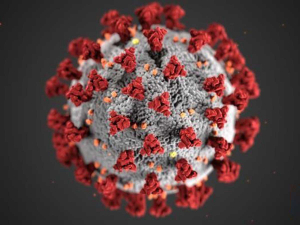M.I.A.
OPINION: The previous government spent too much during the Covid-19 pandemic, despite warnings from officials, according to a briefing released by the Treasury.
 The Greater Auckland region is under Alert Level 3, whilst the rest of the country is under Alert Level 2.
The Greater Auckland region is under Alert Level 3, whilst the rest of the country is under Alert Level 2.
Beef + Lamb New Zealand has released advice for farmers amid new COVID-19 restrictions.
The Government announced late on Tuesday night that the Greater Auckland region would move back to Alert Level 3 and the rest of the country would move to Alert Level 2 at 12pm on Wednesday.
Beef + Lamb New Zealand (B+LNZ) is strongly encouraging farmers to review their systems and ensure they are prepared in case the alert levels are increased in the near future.
Director-General of the Ministry for Primary Industries (MPI), Ray Smith has confirmed that the same definition of essential services used for the lockdown earlier this year will apply again.
Farmers in or around the Auckland region – what does Alert Level 3 mean?
MPI is offering specific advice for farmers within the Alert Level 3 region on its website, including steps to take on farm and what essential services and suppliers you can still access.
Main on-farm implications
• Farmers do not need to register as an essential service at Alert Level 3.
• Here is a boundary map of the Auckland region that Alert Level 3 applies to.
• Employees will need a letter authorising that they are essential worker to cross the boundary, either to come from within the Auckland region to a farm outside the region, or to come to the Auckland region and employ someone from outside of the region. Here is an employee movement letter farmers can use.
• As a business, farmers should ensure that they are following good on-farm protocols to protect workers and ensure swift contract tracing for anyone coming onto the farm. Here is a 10 point plan developed from the last lockdown with advice that still applies.
Access to essential services and farming equipment
• Farmers will have access to key essential services, contractors and supplies. The following is a link to the MPI list, but B+LNZ recommends farmers contact suppliers to confirm arrangements:
Farmers across the rest of the country
• Farmers do not need to register as an essential service at Alert Level 2.
• All farmers across the rest of the country are currently operating under Alert Level 2 and should be taking practical steps to protect their family, workers and others who may come onto the farm.
• Farmers should take steps to ensure there is good hygiene on their farm, that workers maintain at least a distance of one metre, and they should keep track of those coming onto the farm so that contact tracing can be easily enacted if necessary.
What does this mean for processing?
Processing and exporting companies are reviewing their systems to comply with the Alert Level 3 and Level 2 requirements, drawing on the protocols developed last time around.
At this stage, they are not foreseeing delays but are encouraging farmers to get in touch with their livestock representatives.
Along with Retail Meat New Zealand, B+LNZ are continuing to advocate for butchers to be open to face-to-face customers under Alert Level 3.
B+LNZ is encouraging all farmers to review their systems in case the alert levels are raised
B+LNZ says the situation can change quickly, therefore it is encouraging farmers to review their systems and ensure they can quickly adjust in the case their region or the whole country moves to Alert Level 4.
Farmers should think about the services or supplies they may need over the next few weeks and talk to their supplier to ensure they have a plan in place to get these if the country moves to Alert Level 4.
B+LNZ will provide further advice if the alert levels rise.
B+LNZ events
For now, B+LNZ will still be continuing with events that are outside the Auckland region and that have under 100 people.
B+LNZ staff are currently reviewing what is coming up and will be in touch with farmers if any events they had registered for have been cancelled and where feasible moved to virtual meetings to better manage risks.
Further information
The Meat Industry Association of New Zealand (MIA) today announced that Chief Executive Officer Sirma Karapeeva has resigned from the role.
The winners of the 2026 Hawke’s Bay/Wairarapa Dairy Industry Awards were announced at the annual awards dinner held at Copthorne Solway Park in Masterton on Thursday evening.
Environment Southland is welcoming this week’s decision by the Environmental Protection Authority (EPA) to approve the release of Blaptea elguetai, a leaf‑feeding beetle that will help control the highly invasive Chilean flame creeper.
This March, the potato industry is proudly celebrating International Women’s Day on 8 March alongside the International Year of the Woman Farmer, recognising the vital role women play across every part of the sector — from paddocks and packhouses to research, leadership, and innovation.
Fruit trader Seeka posted a record profit and returns to shareholders in 2025.
Recent weather events in the Bay of Plenty, Gisborne/Tairawhiti, and Canterbury have been declared a medium-scale adverse event.

OPINION: A mate of yours truly reckons rural Manawatu families are the latest to suffer under what he calls the…
OPINION: If old Winston Peters thinks building trade relations with new nations, such as India, isn't a necessary investment in…